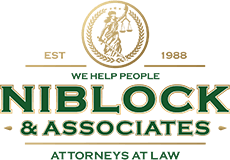When you struggle with insurmountable debts, bankruptcy might be the best solution. The two most common bankruptcy chapters are chapter 7 and chapter 13. Each chapter has its process and benefits. Our Arkansas bankruptcy team will provide a guide to the two most common bankruptcy chapters, explain their differences, each of their processes, and what types of financial situations benefit from either chapter.
Chapter 7 Bankruptcy
Chapter 7 bankruptcy is also known as "liquidation bankruptcy." With this chapter, the court will take legal possession of your property and appoint a bankruptcy trustee to your case. Your assets are liquidated and the proceeds generated are used to repay creditors. The court will discharge your remaining debts at the end of the process. Debts commonly discharged through chapter 7 bankruptcy include:
- Medical bills
- Back rent
- Personal loans
- Credit card charges
- Past-due utility bills
Chapter 7 bankruptcy usually takes four to six months to complete and is best for those who own little property and have limited disposable income.
Chapter 13 Bankruptcy
Chapter 13 bankruptcy, also known as "wage earner's plan," is a chapter where a court-appointed repayment plan is set for you to catch up with debts owed. Unlike chapter 7, chapter 13 takes three to five years to complete. The debts remaining at the end of the repayment plan are discharged.
This chapter is best for those with regular income, who are not filing as a business entity and own valuable property, such as a home, which they would like to keep.
Not All Debts Are Dischargeable
Though many consider bankruptcy a financial reset, it is essential to note that not all bankruptcies are equal. There are debts that aren't dischargeable through bankruptcy, including:
- Child support,
- Alimony
- Court fees,
- Some tax debts
- Most student loans.
It is recommended to hire a bankruptcy lawyer to assess your situation and provide you with the guidance you need.
Contact Our Arkansas Bankruptcy Team Today!
Now that you know the basics of chapters 7 and 13 of bankruptcy, you can determine which chapter is best for your unique financial situation! It is crucial to act quickly when dealing with large amounts of debt. The best way to start your journey towards financial freedom is to have a team on your side. The bankruptcy team at will guide you through the bankruptcy process from start to finish.
If you would like to learn how bankruptcy can help get rid of your debts, don't hesitate to contact us today through our website or give us a call at (501) 299-5963 to schedule your consultation!


